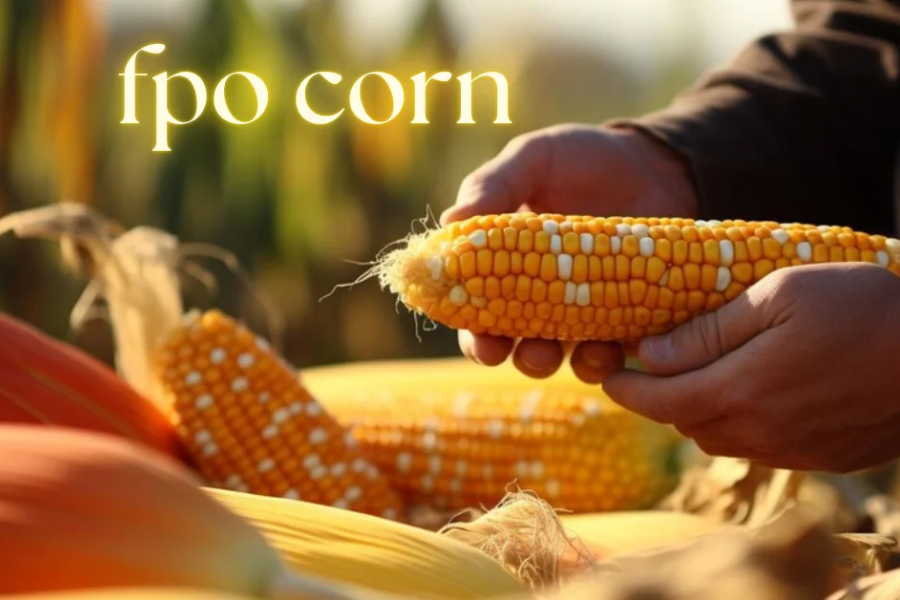FPO Corn: Revolutionizing Farming for Greater Yields
Greetings, and welcome to FPO Corn, your go-to source for how farmer-led initiatives are transforming agriculture for better yields. In today’s rapidly evolving agricultural world, FPO corn, short for Farmer Producer Organization corn, is reshaping farming practices through shared resources, collaboration, and advanced agricultural strategies. As the global population grows and food demand intensifies, innovative approaches like FPO corn are helping farmers produce more effectively and sustainably.
In this article, we’ll explore what makes FPO corn a game-changer, the benefits of collective farming, and how technology and community are helping farmers enhance productivity.
Understanding FPO Corn
FPO corn refers to corn grown by farmers in Farmer Producer Organizations (FPOs), which are collaborative groups designed to help farmers access resources, share knowledge, and increase market reach. By coming together, FPO members can reduce production costs, improve profitability, and create more stable incomes.
FPOs aim to empower farmers through training, access to modern farming methods, and help with pest management and harvesting. This structure enables farmers to produce higher-quality corn, maximize their land’s potential, and improve their overall economic stability.
Community Power in FPOs
The strength of FPOs lies in their sense of community. These organizations foster a cooperative environment where farmers exchange experiences, ideas, and insights. This shared knowledge allows members to adopt new techniques more quickly and efficiently, leading to enhanced productivity across the group.
Being part of an FPO also helps farmers navigate challenges together, creating a support network that is crucial in an unpredictable industry. The solidarity in these groups offers a sense of belonging and collective purpose, which can be highly motivating for individuals who often work in isolation. With a collaborative structure, FPOs help farmers access resources, cope with market fluctuations, and discover solutions to common farming challenges.
Technology: A Tool for Growth
One of the most transformative aspects of FPOs is their use of technology. Many FPOs provide farmers with access to modern agricultural tools like precision farming equipment, soil testing kits, and crop monitoring systems. These technologies help farmers make better, data-driven decisions that lead to healthier crops and increased yields.
For instance, precision agriculture enables farmers to apply fertilizers and pesticides with greater accuracy, minimizing waste and promoting crop health. Tools like drones and satellite imagery allow farmers to monitor crop conditions remotely, catching potential issues before they become severe. By embracing technology, FPO members can optimize resources, save on costs, and increase profits.
Market Access: Empowering Farmers
One of the greatest benefits of FPOs is their ability to help farmers reach larger markets. By selling collectively, FPO members can negotiate better prices with buyers, including large retailers and exporters, providing them with a stronger foothold in competitive markets.
Additionally, FPOs often encourage direct-to-consumer sales, allowing farmers to connect more closely with local communities. When consumers have a personal connection to their food’s source, they are often more willing to support local farmers, creating a beneficial cycle that boosts both the farmer’s income and community support.
Embracing Sustainable Agriculture
Sustainability has become essential in agriculture, and FPOs are playing a leading role in promoting eco-friendly farming practices. Many FPOs encourage crop rotation, organic farming, and integrated pest management, all of which contribute to healthier soil and a reduced environmental footprint.
These sustainable practices benefit not only the farmers but also the land and surrounding ecosystems. Healthier soil leads to better yields, while environmentally responsible practices help preserve biodiversity. This focus on sustainable agriculture ensures that farming can thrive for generations, making it possible to meet both current and future food demands.
Education and Training: The Key to Success
Education is a core component of FPOs, with many organizations offering workshops and training sessions to bring farmers up to speed on the latest farming techniques. By investing in continuous learning, FPOs equip farmers to make informed decisions and adopt new practices effectively.
Training covers a range of topics, from soil health and pest management to irrigation and technology use. By empowering farmers through education, FPOs create a culture of adaptability and resilience, which is essential in today’s fast-paced agricultural world.
Tackling Challenges in FPO Corn
Although FPO corn has brought substantial benefits, there are still obstacles to overcome. One challenge is that some farmers may be hesitant to join FPOs, preferring the independence of traditional farming methods. To address this, successful FPOs often showcase the advantages of collaboration through case studies and testimonials, helping others see the tangible benefits of joining.
Another major challenge is accessing financing. Many smallholder farmers struggle to obtain loans for necessary equipment and supplies. FPOs can assist by negotiating with financial institutions for more favorable loan terms on behalf of their members. This collective bargaining power helps farmers secure the funding they need to grow their businesses.
The Future of FPO Corn
The future of FPO corn is bright, with increasing numbers of farmers recognizing the advantages of collaboration, technology, and market access. As the global demand for food rises, FPOs will play an essential role in meeting these needs by helping farmers achieve higher productivity and sustainability.
As consumers become more aware of the importance of sustainability and local agriculture, FPOs are well-positioned to satisfy these market demands. By promoting sustainable farming practices and direct market connections, FPOs will continue to shape the agricultural landscape in the years to come.
Conclusion
FPO corn is more than just a farming practice; it’s a movement toward a sustainable, community-centered, and technology-driven future for agriculture. By coming together, farmers can boost their productivity, access new markets, and embrace environmentally friendly methods that protect the planet.
The journey to higher yields and sustainable farming isn’t just about technology; it’s about building a community that supports each other’s growth. As more farmers adopt the FPO model, the entire food supply chain benefits, from the farmers in the fields to the consumers at the table. FPO corn is paving the way for a resilient and productive future in agriculture.
Stay in touch to get more news & updates on World Insider!






